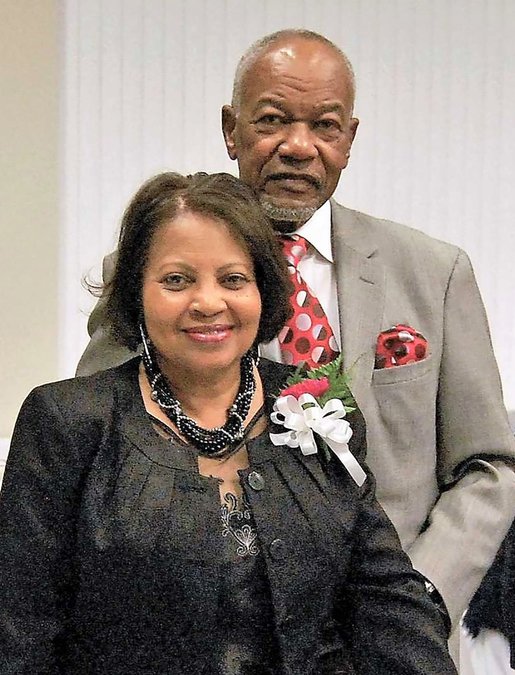The Rev. Harold Cobb says he saw his hometown differently after noticing what a Midwest city was doing to improve the quality of life for all its residents.
That led to him working with others during the next six decades to improve life for all in Covington and Newton County, as well.
He said he has always wanted to see what an entire community — made up of all races — can do together.
“My father was a sharecropper with a third grade education,” Cobb said. “Because of his thinking that everybody is somebody, he brought his family up that way.”
He said he and his siblings believe in that philosophy, as well, Cobb said.
“We want to see this country, called the United States of America, come together as one,” he said.
Cobb graduated from R.L. Cousins High School in 1961 at a time when Newton County schools and many public accommodations were still segregated. He was serving in the Air Force and stationed in Wichita, Kansas, when he saw what Covington could become, he said.
“Being stationed in Wichita, Kansas, gave me an opportunity to live in an ‘All American City,’ where I was able to see all races working together as one and a city that was clean, with no ghetto areas,” Cobb said.
“I never saw Covington as I saw it that day,” he said. “That’s when I decided to come back and try to make a contribution to the whole city, because I learned one thing (that) you can’t get part of something done without getting the whole thing.”
He met his wife of 58 years, Reta, in Wichita. His father lived on Washington Street and he moved with Reta back to Covington to start a family.
Cobb said he then opened a nightclub in Covington but found it was not his calling — though it was a valuable learning experience. The business itself was not “God’s vision for me” but he learned how to work with people “regardless of where they were in life,” Cobb said.
“Also, I discovered that I had a strong sense of discernment that enabled me to guide and assist others in a Godly manner,” Cobb said.
It led to him serving on the Newton County Recreation Commission and forming Little League and Pony League baseball teams.
He then decided to seek a seat on the Covington City Council “mainly because Black children had nowhere to play and were not allowed to play at Baker Field.”
Over the next decade Cobb unsuccessfully ran for a seat on the Covington City Council five times — which showed him he could not win unless council members represented individual geographic districts rather than all members serving at-large.
“The city of Covington was not ready for a Black (councilman) — this was in the ‘60s,” he said.
The realization led Cobb and others to form the Newton County Voters League, which sued the city and county governing bodies to divide themselves into districts in the early 1970s. It was successful and Cobb decided to run for the new county commission District 4 seat rather than a sixth time for Covington City Council.
He then was able to use the name recognition he gained from his runs for city council to defeat Oliver Capes in the 1976 election to become the first Black Newton County commissioner.
Cobb served for 18 years until 1994 — working with the likes of Roy Varner, Davis Morgan, Franklin Gray, Nelson Allen and others.
“The greatest joy I had for being on the Board of Commissioners was to work with five men with the same mindset,” he said. “Moving this county forward in the projects that would not only allow this county to grow but to see the county and city pursue a working relationship that is still blessing all facets of Newton County.”
He was part of a group of commissioners that established a new industrial park, as well as built Cornish Creek Reservoir and found land for a second reservoir.
Cobb worked with Oxford College leaders and the Board of Commissioners to establish the Martin Luther King Scholarship Committee — which Cobb led for 32 years; and worked with the Newton County Minister’s Union to create the King Celebration Committee.
He also worked with other area leaders to keep Washington Street Community Center open by adding tennis courts and a basketball court. Cobb worked with some area faith leaders to establish the Newton County Food Bank and have Habitat for Humanity build houses for deserving people in Covington, he said.
“I was blessed to work with others to achieve and make this county stronger within many areas,” Cobb said.
Meanwhile, he also worked for Ford Motor Co. before retiring as an environmental engineer. He then began a second career after being ordained in the United Methodist Church and completing or attending Beulah Heights University, Candler School of Theology at Emory University, DeKalb Community College (now Piedmont Technical College), Mercer University, Draughon Business College and Atlanta Area Technical College, he said.
He has served as pastor of Gaither Chapel UMC, associate pastor at Columbia Drive UMC, and pastor at Union Grove UMC, Henry M. White UMC, White Chapel UMC and Flat Rock UMC, which he led to build a new church building.
Most recently, Cobb worked to help establish a Citizen’s Review Board to provide some oversight of the Covington Police Department and encourage transparency of police actions for all community members.





